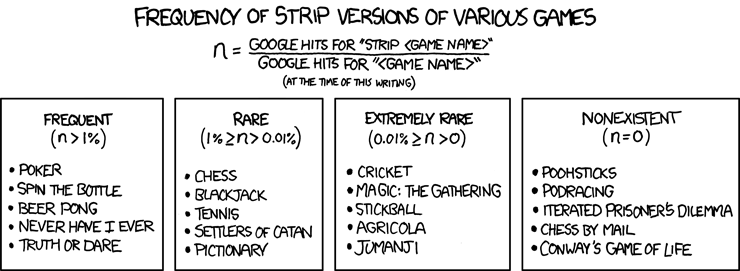
(Image courtesy of xkcd, click for larger image)
Consider the following two player game. Players 1 and 2 have strictly increasing and strictly convex preferences which admit a utility function representation over the number of songs they see a stripper dance to. The game they play is a finitely iterated game in which each player chooses cooperate or defect in the beginning of the period. The payoffs of the game are as follows. If both players choose cooperate, the stripper dances to two songs in the period. If both players choose defect the stripper dances to one song in the period. If one player chooses cooperate and the other chooses defect, the player choosing defect will receive a 3 song private dance.
How does the sub game perfect Nash equilibrium depend on the parameters of the number of periods and the curvature of the utility functions? With the assumptions in the statement of the problem, is it possible for cooperate cooperate to be played repeatedly in the infinitely repeated game?

We're still on one-shot games.
ReplyDeleteSo what's the answer? And can you give a picture (strictly convex means something like quadratic, (right?) but a picture always helps.)
You assume I know the answers? And what kind of second rate institution are you going to that you don't know what convex preference are?
ReplyDelete